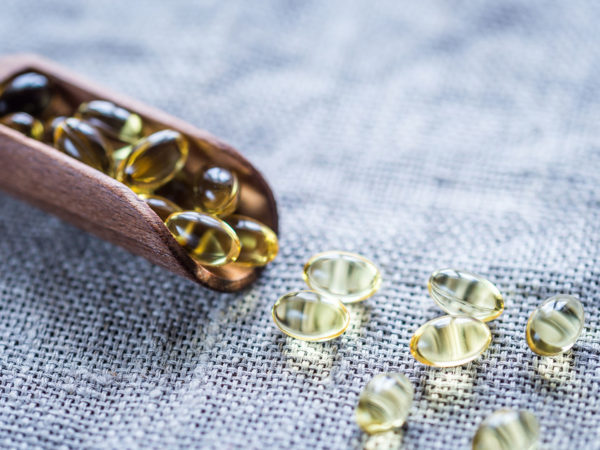Fish Oil For Healthy Aging?
I understand that fish oil has been linked to healthy aging. How much fish would I have to eat to gain the benefits?
Andrew Weil, M.D. | December 27, 2018

Fish oil is a rich source of the two essential omega-3 fatty acids, EPA (eicosapentaenoic acid) and DHA (docosahexaenoic acid). It is found in cold water, oily fish. Omega-3s reduce inflammation and may in turn help reduce the risk and symptoms of a variety of disorders influenced by inflammation, including heart attack, stroke, cancer and autoimmunity.
New research has linked high blood levels of omega-3s with a better chance of maintaining good health in old age. A team from the Friedman School of Nutrition Science and Policy at Boston’s Tufts University followed 2,622 seniors for 22 years to determine links between omega-3s and healthy aging. All the participants were healthy when they joined the study with an average age of 74. At the outset, they all completed detailed dietary questionnaires. No one taking fish oil supplements was included.
The researchers defined healthy aging as living into old age without developing chronic conditions such as heart disease, dementia or cancer or as dying after age 65 without any of these chronic medical problems.
Over the course of the study, the researchers measured blood levels of EPA and DHA as well as docosapentaenoic acid (DPA), which comes from seafood and is produced in the body, plus alpha-linolenic acid (ALA), an omega-3 precursor found in plants. They found that 11 percent of the participants, those who had the highest blood levels of EPA and DPA, remained healthy and had an 18 percent lower risk of unhealthy aging compared to people whose omega-3 levels were lowest. (Neither ALA nor DHA were linked to healthy aging.) When lifestyle factors were taken into consideration, the researchers found that seniors with the highest EPA levels had a 24 percent lower risk of unhealthy aging compared to those whose EPA levels were lowest.
Because this was an observational study, it revealed only an association between high blood levels of fish oils and healthy aging, not cause and effect.
In terms of fish consumption, the researchers reported that participants whose risk of unhealthy aging was lowest consumed about two servings of fish per week, compared to only one per week among people whose omega-3 blood levels were lowest.
I recommend eating three ounces of fish two to three times a week. Choose wild salmon, mackerel, herring and sardines. The Tufts study didn’t look at fish oil supplements, so it didn’t postulate what role, if any, they play in healthy aging. However, if you’re not getting adequate amounts of omega-3s in your diet, I recommend taking a good quality fish oil supplement.
Andrew Weil, M.D.
Source:
Heidi T.M. Lai et al, “Serial circulating omega 3 polyunsaturated fatty acids and healthy ageing among older adults in the Cardiovascular Health Study: prospective cohort study.” BMJ, October 17, 2018; DOI: 10.1136/bmj.k4067











